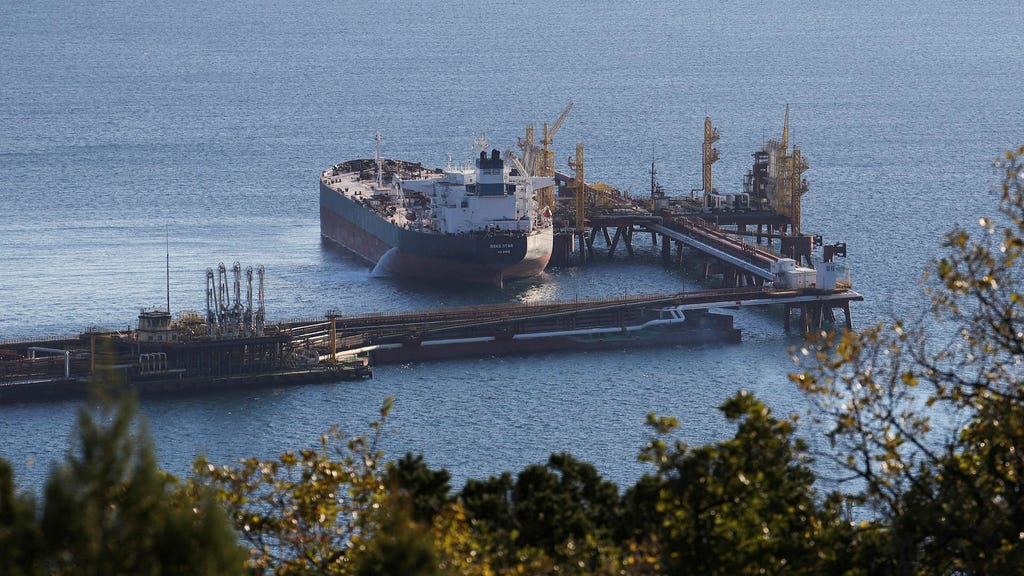The Estonian Prime Minister, Kaja Kallas, has declared a firm stance against vessels suspected of operating within the ”Russian shadow fleet,” a network of ships allegedly engaged in circumventing international sanctions, particularly those related to oil and gas exports. These sanctions, imposed following Russia’s invasion of Ukraine, aim to cripple Russia’s ability to finance the war effort. Kallas has stated that any ships lacking proper insurance documentation and suspected of involvement in sanctions evasion will be subjected to boarding and inspection by Estonian authorities, or will face sanctions themselves. This assertive approach reflects Estonia’s commitment to enforcing international sanctions and underscores the country’s strategic position bordering Russia and its keen awareness of maritime activities in the Baltic Sea region. The implications of this declaration extend beyond Estonia’s borders, signaling a potential shift in the enforcement of sanctions against Russia and placing pressure on other nations to adopt similar measures.
The concept of a “shadow fleet” refers to a collection of tankers, often older and less regulated, that are employed to transport Russian oil and gas to global markets, thereby undermining the effectiveness of sanctions. This network often utilizes complex ownership structures and operates in opaque ways to avoid detection and evade established international regulations. The use of ship-to-ship transfers at sea further complicates tracking and monitoring efforts. The existence of this shadow fleet poses a significant challenge to the international community’s efforts to curtail Russia’s revenue streams from energy exports, and highlights the difficulties in effectively policing global maritime trade. By targeting the insurance coverage of these vessels, Estonia aims to disrupt the operational capacity of the shadow fleet by making it difficult for them to obtain the necessary insurance required for international travel and trade.
The Estonian Prime Minister’s announcement highlights the growing concerns about the efficacy of existing sanctions against Russia and the need for more robust enforcement mechanisms. The current framework relies heavily on the cooperation of international insurance providers and classification societies to deny coverage to vessels involved in sanctioned activities. However, the shadow fleet’s reliance on less reputable insurers and its ability to operate outside of established regulatory frameworks poses a significant challenge. Estonia’s proactive approach signals a potential move towards more direct intervention by individual states to address these loopholes and strengthen the overall sanctions regime. This approach may also encourage other nations to take similar actions, thereby increasing the pressure on Russia and those involved in facilitating sanctions evasion.
The legal basis for boarding and inspecting vessels suspected of sanctions evasion is a complex issue. While international law generally protects the right of ships to navigate freely on the high seas, specific provisions allow for boarding and inspection under certain circumstances, such as suspicion of involvement in illegal activities, including sanctions busting. Norway’s Prime Minister, Jonas Gahr Støre, has weighed in on the matter, highlighting the importance of adhering to existing international maritime law and established procedures. He emphasizes the concept of “reasonable suspicion” as a prerequisite for boarding and inspecting vessels, suggesting that any such actions must be based on credible evidence of potential wrongdoing and conducted in accordance with international legal norms.
The potential implications of Estonia’s stance are far-reaching. Increased scrutiny of vessels suspected of belonging to the Russian shadow fleet could disrupt global energy markets and lead to further price volatility. It may also trigger retaliatory measures from Russia, escalating tensions in the already strained geopolitical landscape. Furthermore, the move could prompt other countries to adopt similar strategies, leading to a more fragmented and complex enforcement environment for international sanctions. This could potentially increase the burden on shipping companies and insurers, as they navigate a more challenging regulatory landscape. The long-term consequences will depend on the extent to which other countries follow suit and the effectiveness of these measures in curbing sanctions evasion.
The Estonian initiative underscores the evolving nature of sanctions enforcement in the face of sophisticated evasion tactics. It marks a potential shift towards more direct and assertive actions by individual states, potentially setting a precedent for future sanctions regimes. The success of this approach will depend on international cooperation, adherence to legal principles, and the ability to effectively target the complex networks facilitating sanctions evasion. The evolving situation warrants close monitoring to assess the impact on global trade, geopolitical stability, and the effectiveness of international sanctions in achieving their intended objectives. The shadow fleet remains a significant challenge, and ongoing efforts to dismantle it will require a multifaceted approach involving collaboration among governments, international organizations, and the private sector.














